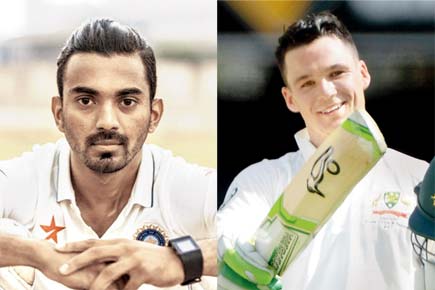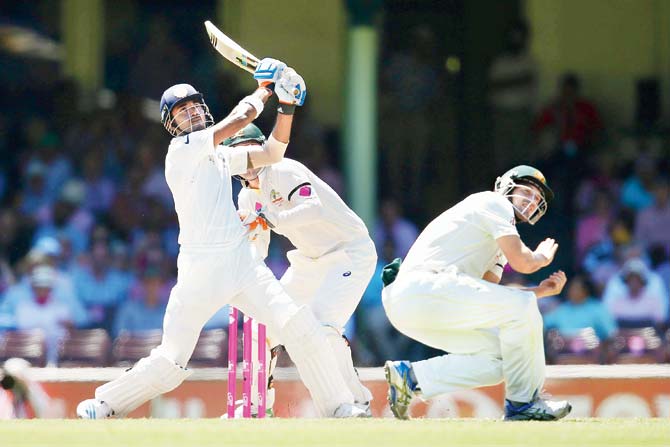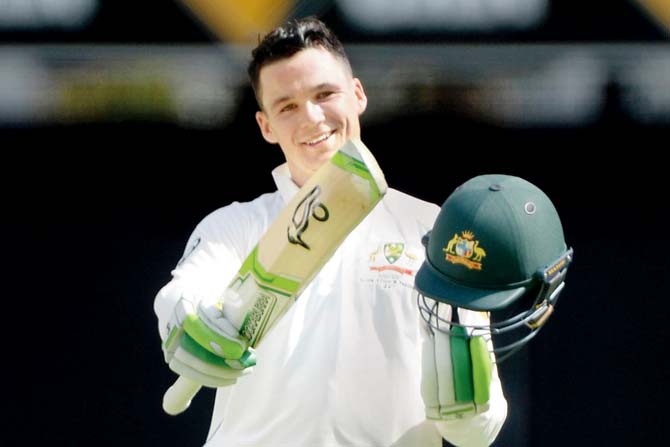Good batsmen come and go, but watching this passing parade of different styles offers a lot of pleasure. In this age of power batting it’s comforting to see artistry from players compiling skilful Test centuries


India’s KL Rahul during his hundred against Australia in Sydney on January 8, 2015.
ADVERTISEMENT
The u00c2u0080u00c2u0088regeneration of teams is one of the more fascinating aspects of the game. The fact that India for example, were able to absorb the considerable blows of losing champion batsmen like Sachin Tendulkar, Rahul Dravid and VVS Laxman and continue to thrive, is a tribute to their development system.
The maturity of Virat Kohli into one of the finest batsmen in the world has helped India overcome those losses but Murali Vijay and Cheteshwar Pujara have also helped ensure a smooth transition. The production line still seems to be in fine working order with KL Rahul and Karun Nair now displaying their considerable skills.
India’s director of cricket at the time Ravi Shastri, first alerted me to Rahul’s likely rise to prominence. Many years of working with Shastri have led me to trust his judgement, so I wasn’t surprised when Rahul overcame a wobbly start to his career to compile a sound century at the SCG.
This innings displayed his composure, as well as a solid technique and a decent array of strokes. For an Indian player to open his Test century account on a bouncy Australian pitch is no mean feat and by continuing to score heavily in different parts of the cricket world, Rahul has further confirmed his ability. The areas of concern with Rahul are his injury history and the number of low scores in between the three figure innings. The fact that he’s only played nineteen Test innings in the space of two years is a worrying trend and the eight single figure scores are not what you want in an opening batsman.

Peter Handscomb of Australia celebrates his century against Pakistan at the Gabba in Brisbane on December 16, 2016. Pics/Getty Images
However, only one of those low scores has come in 2016, which could mean he’s gradually eradicating this unwanted trait. He may also need to sharpen his footwork against the spinners as five of his nine dismissals in 2016 have come against tweakers.
While India has been outstanding in producing good young batsmen, the rest of the world hasn’t been standing still. England has, with varying degrees of success, recently introduced Ben Duckett, Haseeb Hameed and Keaton Jennings to Test cricket. Sri Lanka has been a surprise packet in this regard with young players like Kusal Mendis and Dhananjaya de Silva contributing centuries in their upset whitewash of Australia.
Australia was forced to make wholesale changes to their batting line-up following the demolition job done by the South African attack at Bellerive. As a result of that collapse Matthew Renshaw, Peter Handscomb and Nic Maddinson were all introduced to Test cricket.
Of that trio, Handscomb has been the most prolific and looked the most assured. Handscomb’s thoughtful approach to T20 batting first caught my eye during the Big Bash League (BBL). His Test century against Pakistan at the Gabba confirmed he was a young man with both the shots and temperament to succeed.
Shane Warne was the first to praise Handscomb’s ability against spinners -- claiming he had the best footwork of any batsman in Australia -- and this was while he was bowling to the young man in the nets.
This claim will soon be tested in the toughest of cauldrons; a Test series in India. There’s no doubt that if Australia is to make a better fist of touring India, Handscomb will have to play a big part in any resurgence.
Good batsmen come and go but watching this passing parade of different styles offers a lot of pleasure. In this age of power dominated batting it’s comforting to see artistry from players compiling skilful Test centuries.
 Subscribe today by clicking the link and stay updated with the latest news!" Click here!
Subscribe today by clicking the link and stay updated with the latest news!" Click here!






